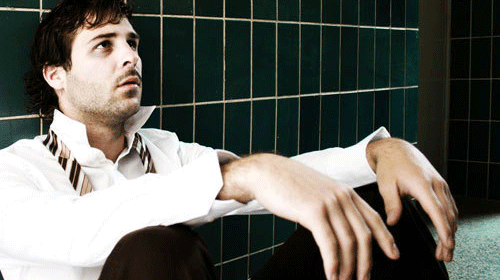
Depression
Depression – a disorder as old as the history of humankind. Already Hippocrates (460-377 BC) described melancholia, a condition very similar to today’s depression.
More than 350 million people globally are affected by depression and it can affect anyone – from young people to seniors. But what exactly means being affected by a depression? What are the common symptoms? And which treatments are available?
Definition
Depression is a serious medical illness that causes a persistent feeling of sadness and/or loss of interest. It is also called major depression, major depressive disorder or clinical depression and it affects your feelings, your way of thinking and how you behave. A Depression can lead to a variety of emotional and physical problems, it may make you feel as if life isn’t worth living and often it interferes in doing your normal day-to-day activities.
Symptoms
Symptoms can include sadness, emptiness, a loss of interest or pleasure in activities you used to enjoy, a change in weight, a difficulty sleeping or oversleeping, an energy loss, anxiety, agitation or restlessness, slowed thinking, speaking or body movements, feelings of worthlessness and thoughts of death or suicide.
Forms
There are several forms of depression. One distinguishes between a Major Depressive Disorder, Persistent Depressive Disorder (Dysthymia), Psychotic Depression, Postpartum Depression and Seasonal Affective Disorder (SAD).
- Major Depressive Disorder: This form is characterized by a depressed mood which lasts for more than two weeks and which impairs the patient’s life, including work, private life, relationships and friendships. An episode can occur only once in a person’s lifetime, but more often, a person has several episodes.
- Persistent Depressive Disorder (Dysthymia): This form lasts for at least two years and the patient may have episodes of a major depression along with periods of less severe symptoms. This is considered a chronic form of depression.
- Psychotic Depression: This form occurs when a patient has severe depression plus some form of psychosis, such as having disturbing false beliefs or a break with reality (delusions), or hearing or seeing upsetting things that others cannot hear or see (hallucinations).
- Postpartum Depression: This form many women experience after giving birth when hormonal and physical changes and the new responsibility of caring for a newborn can be overwhelming. It is more serious than the “baby blues”.
- Seasonal Affective Disorder: This form is characterized by the symptoms of a Major Depressive Disorder only during a specific time of year, usually winter. This appears to be related to the shorter days of winter, and the lack of sunlight in many parts of the country.
A depression is more than just a “blues” or feeling down for a few days. It is a medical illness, not a sign of weakness.

